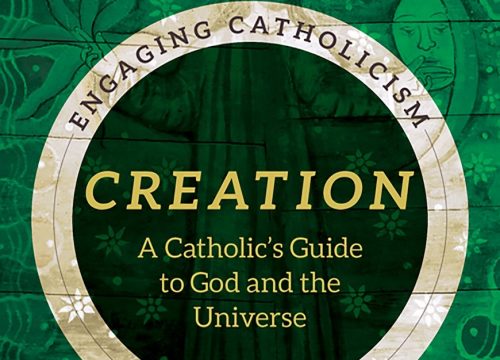“Creation: A Catholic’s Guide to God and the Universe” by Christopher T. Baglow. Ave Maria Press (Notre Dame, Indiana, 2021). 141 pp., $14.95.
By Eugene J. Fisher | Catholic News Service
This excellent book is sponsored by the McGrath Institute for Church Life of the University of Notre Dame.
The book provides a sound introduction for general readers to church teaching on a number of theological and moral issues, providing an easy-to-read overview of and deep engagement with a number of core questions that Catholics, from teenagers to elderly adults, will find both interesting and illuminating.
It can also spark deeper discussions for groups in dialogue together for better understanding of our faith and how we can best live it, individually and communally, in this complex world of ours.
The book has six chapters and a brief conclusion, corresponding to the six days of creation and a thoughtful divine rest on the seventh.
The first chapter delves into the Christian doctrine of creation, which the author rightly sees as an act of divine love.

The Trinity, properly understood, is a unity but also a community. So too is humanity, created as the image and likeness of God, composed of individuals who are called to come together. Coming together in love involves devoting oneself to working for the betterment of all.
So Baglow, following the thinking of St. Thomas Aquinas, rightly defines love as a combination of justice and mercy, treating each other fairly, ensuring that offenders are stopped, but also forgiving them when they repent and seek to live better lives.
Chapter 2 raises the question of the interconnectedness of good and evil. Here the author cites the encounter of the French Catholic novelist, Francois Mauriac, when he was interviewed for an article in an Israeli paper by a young man in 1956.
Mauriac speaks of how his wife watched the cattle cars filled with Jewish children being taken somewhere, and how she wept when she later learned where they were taken, to the death camps. The journalist, Elie Wiesel, replies simply: “I was one of them.” Mauriac’s detailed response may make readers stifle their own tears.
Mauriac encouraged and helped the young man to write his memoir of his time in Auschwitz, the short book, “Night,” which Baglow rightly notes “would forever change the world’s understanding of the Holocaust.” The chapter ends with a quote from the Bible offering hope for a better world of love and justice for all.
Chapters 3 and 4 engage the issue of reconciling the biblical stories of creation in the first and second chapters of Genesis with the science of evolution.
Baglow notes that science helps us understand how humanity came to be what it is, while Genesis teaches us the why of who we are and what we can strive to be, again individually and communally.
Chapters 5 and 6 deal with good and evil, what it means to sin and how one can find mercy and love in the sacred heart of Jesus, who sacrificed his human life so that we all might rise from our sins to live a new life of love, justice, mercy and forgiveness.
In Jesus’ life, death and resurrection, all humanity can find a new hope, a new and renewed Adam and Eve. Jesus, he states, is “the final Adam.”
I would note, in conclusion, that the creation/evolution of humanity is not yet complete or its hopes fully fulfilled.
This will only come at the end of time when Jesus returns as the Messiah and ushers in the age of permanent love and justice for all humanity. Then all will see Jesus as the final Adam.
Eugene J. Fisher is a professor of theology at St. Leo University in Florida.






















